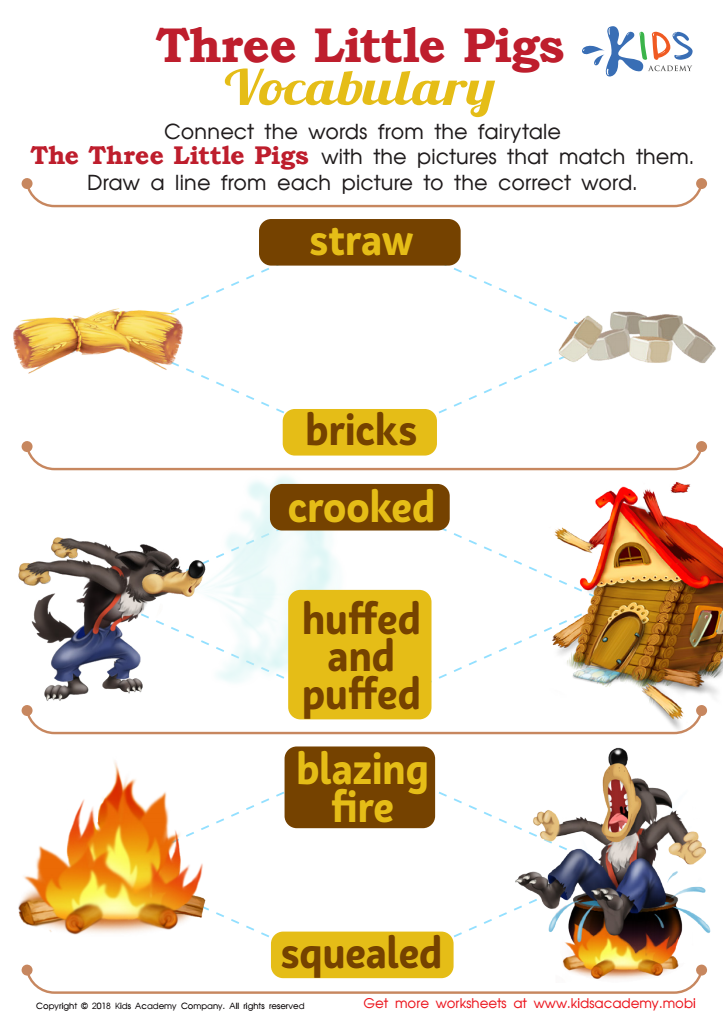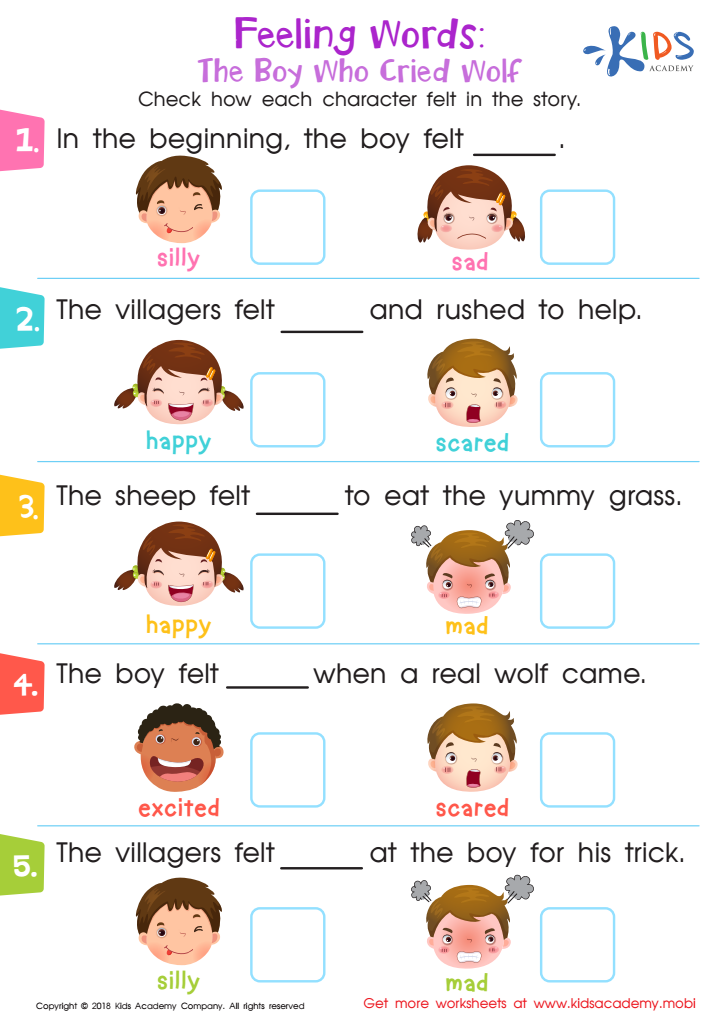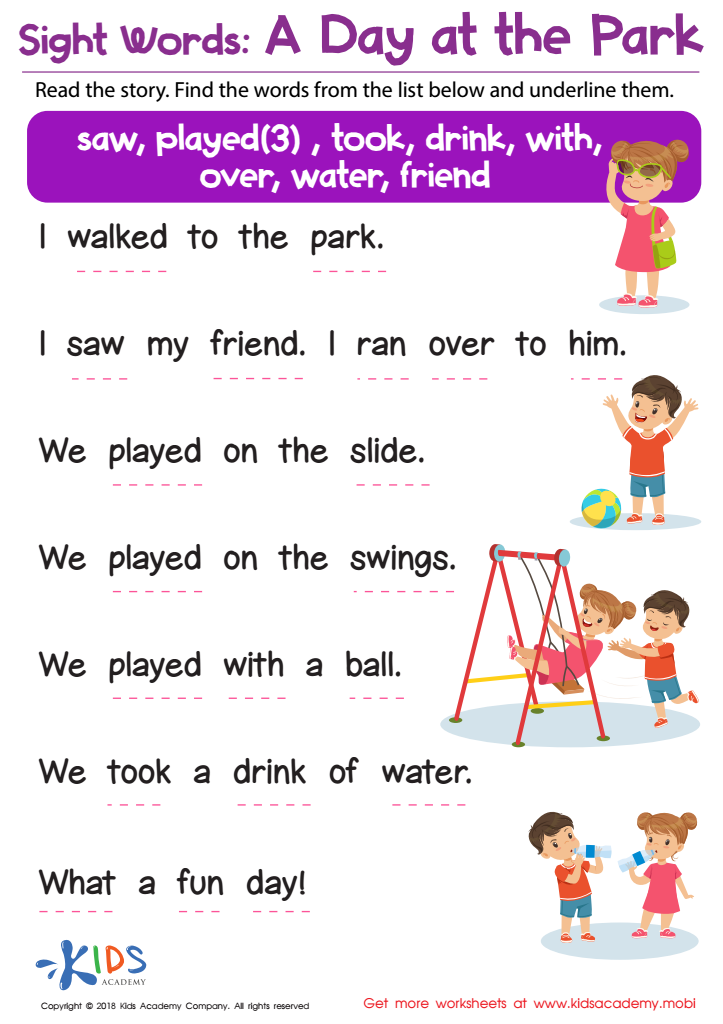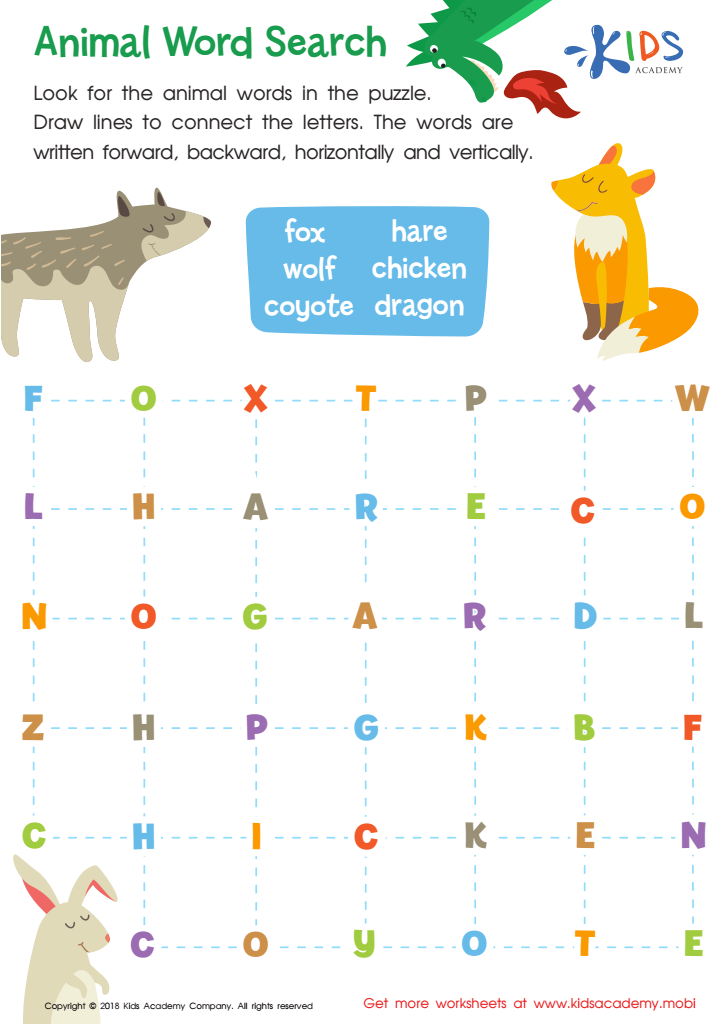Vocabulary Building Normal Building Vocabulary Worksheets for Ages 5-6
4 filtered results
-
From - To
Boost your child's language skills with our Vocabulary Building Worksheets designed for ages 5-6. These engaging, printable sheets provide a fun and effective way for young learners to expand their vocabulary while enhancing reading comprehension and cognitive development. Each worksheet includes a variety of activities such as matching words to pictures, fill-in-the-blanks, and word tracing, tailored to keep young minds engaged. Perfect for both classroom and at-home learning, our expertly crafted worksheets make vocabulary practice enjoyable, setting a strong foundation for future reading success. Help your child thrive with our essential vocabulary-building resources today!


Three Little Pigs Vocabulary Worksheet


Feeling Words: The Boy Who Cried Wolf Worksheet


Sight Words: A Day at the Park Worksheet


Animal Word Search Worksheet
Building vocabulary for children aged 5-6 is crucial for fundamental language development and overall cognitive growth. At this age, children are like sponges, absorbing new information rapidly. A rich vocabulary enhances their ability to communicate effectively, express their thoughts, and understand others. This early foundation in language is not just essential for day-to-day communication but also critically supports reading and writing skills, which are fundamental for academic success.
Parents and teachers play a pivotal role in vocabulary building by creating a language-rich environment. Engaging in conversations, reading books together, and introducing new words in various contexts help children grasp meanings and usage. Interactive activities like storytelling, singing, and playing word games make learning fun and effective.
Moreover, research shows that children with a broad vocabulary tend to perform better academically. They excel in reading comprehension, understand instructions more easily, and show greater critical thinking skills. Having a strong vocabulary at an early age also boosts children’s confidence, motivates them to participate more in classroom activities, and fosters a love for learning.
Ultimately, a well-developed vocabulary lays the groundwork for future academic endeavors and lifelong communication skills, making it a vital focus for both parents and teachers.

 Assign to My Students
Assign to My Students






























